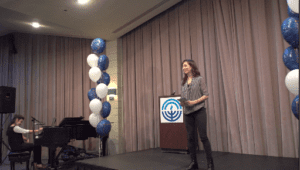Equity and Ownership in Storytelling
by Tatiana Baccari
December 10th, 2020
Should artists tell stories outside of their identity and experience?
Alright y’all. This is a week of QUESTIONS. And of me spilling the tea about the work struggles I alluded to last week.
Who is allowed to tell a story? Who deserves the resources to tell a story? Should we be allowed to tell the story of a character or characters that do not reflect our own identity fully or exactly? Should a Black creator be allowed to tell a white story? Should a white creator be allowed to tell a Black story? Should a cis person be allowed to tell a trans or genderqueer story? And vice versa? What does “allowed” even mean? I think it is rooted in rightness, in whiteness, in racism, in classism, in ableism, in justice, in political correctness, in oppression, in hierarchy, in capitalism. Who holds the power?

These are the questions I’ve been wrestling with over the last few weeks. An opportunity arose in my life to make a film, really any film, that centers the Tampa Bay community in some way. The opportunity came about because of the work I’ve done in the community to center their stories, to do community outreach, to invest in the incredible arts organizations here and to talk to people about their lives in this area we call home. I asked a playwright friend of mine who isn’t from here but whose work and process I admire, to make this with me. I write and direct my own work, but what I really love is to make a creative work in collaboration with other people. I’ve written extensively about the Jewish community I grew up in Clearwater and St. Pete. This time, I wanted to tell a broader story that encompassed a wider array of the folks who live in the Bay area and their experiences. The story we’ve been crafting has a central character who is a Black Queer Woman. The writer and I both identify as queer. We’re also white. What has come up, I think, are these questions. Is this appropriate for us to tell? Are we thinking deeply enough about it? How do we check our own blind spots or biases? How do you make an authentic story that is respectful in its process and content?


